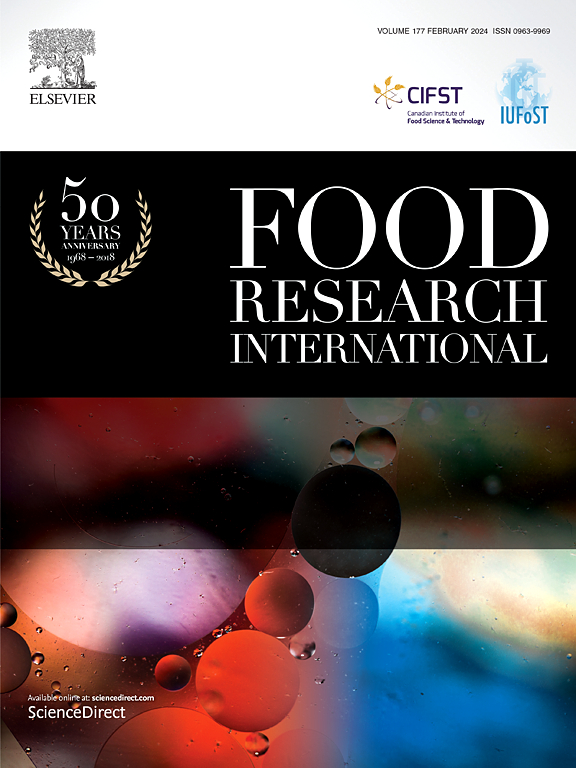High-phytosterol rapeseed oil prevents atherosclerosis by reducing intestinal barrier dysfunction and cholesterol uptake in ApoE−/− mice
IF 7
1区 农林科学
Q1 FOOD SCIENCE & TECHNOLOGY
引用次数: 0
Abstract
Atherosclerosis (AS) is a chronic vascular disease characterized by the formation of an atherosclerotic plaque and high serum cholesterol. This study focused on the role of intestinal cholesterol uptake and barrier integrity of AS mice to investigate the anti-AS mechanism of high-phytosterol rapeseed oil (HPRO). The results showed that HPRO exhibited a significant anti-AS effect, which significantly reduced aortic plaque and serum cholesterol content, and increased aortic diameter. The comprehensive analysis of transcriptomic and metabolomic analysis on the intestine showed that HPRO mainly regulated primary bile acid biosynthesis and cholesterol metabolism. Interestingly, HPRO was found to reduce cholesterol absorption, transport, and micellar cholesterol content in the intestine, and the effect of HPRO was better than β-sitosterol. In addition, the expression of ZO-1 and occludin increased in both Caco-2 cells and the mice intestine, suggesting that HPRO can improve intestinal barrier function. Overall, these findings suggested that HPRO showed a significant preventative action on AS by reducing intestinal barrier and cholesterol intake dysfunction.
高植物甾醇菜籽油通过降低ApoE−/−小鼠肠道屏障功能障碍和胆固醇摄取来预防动脉粥样硬化
动脉粥样硬化(AS)是一种以动脉粥样硬化斑块形成和高血清胆固醇为特征的慢性血管疾病。本研究通过对AS小鼠肠道胆固醇摄取和屏障完整性的影响,探讨高甾醇菜籽油(HPRO)抗AS的作用机制。结果表明,HPRO具有明显的抗as作用,可显著降低主动脉斑块和血清胆固醇含量,增加主动脉直径。肠道转录组学和代谢组学综合分析表明,HPRO主要调控初级胆汁酸生物合成和胆固醇代谢。有趣的是,HPRO被发现可以降低胆固醇在肠道中的吸收、运输和胶束胆固醇含量,并且HPRO的效果优于β-谷甾醇。此外,在Caco-2细胞和小鼠肠道中,ZO-1和occludin的表达均增加,表明HPRO可以改善肠道屏障功能。总的来说,这些发现表明HPRO通过降低肠道屏障和胆固醇摄入功能障碍对AS有显著的预防作用。
本文章由计算机程序翻译,如有差异,请以英文原文为准。
求助全文
约1分钟内获得全文
求助全文
来源期刊

Food Research International
工程技术-食品科技
CiteScore
12.50
自引率
7.40%
发文量
1183
审稿时长
79 days
期刊介绍:
Food Research International serves as a rapid dissemination platform for significant and impactful research in food science, technology, engineering, and nutrition. The journal focuses on publishing novel, high-quality, and high-impact review papers, original research papers, and letters to the editors across various disciplines in the science and technology of food. Additionally, it follows a policy of publishing special issues on topical and emergent subjects in food research or related areas. Selected, peer-reviewed papers from scientific meetings, workshops, and conferences on the science, technology, and engineering of foods are also featured in special issues.
 求助内容:
求助内容: 应助结果提醒方式:
应助结果提醒方式:


